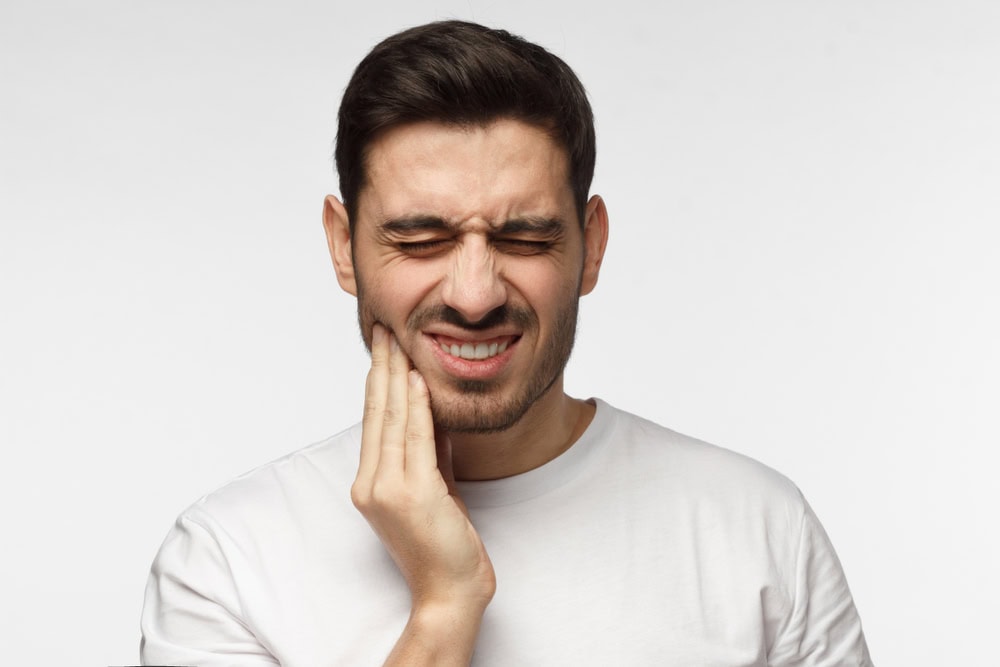Extractions/Wisdom Teeth
Home | Our Procedures | Extractions/Wisdom Teeth
What is an Impacted Tooth?
While most individuals develop 32 permanent adult teeth, many jaws are too small to accommodate the four wisdom teeth. When there isn’t enough space for these teeth to erupt, they become impacted. This means they can’t emerge in the correct position for proper chewing and cleaning.

Oral Examination:
Through an oral examination and x-rays, our surgeons can assess the position of your wisdom teeth and identify any current or potential issues. Research shows that early evaluation and treatment lead to better outcomes. Typically, patients are first evaluated in their mid-teen years by a dentist, orthodontist, or oral and maxillofacial surgeon. All outpatient surgeries are performed under appropriate anesthesia to ensure maximum patient comfort. Our doctors are highly trained and experienced in providing various types of anesthesia.
Should I Have My Wisdom Tooth Removed?
If there’s insufficient room in your mouth for your wisdom teeth to fully erupt, several problems can arise. It’s generally recommended to remove impacted wisdom teeth before their root structure fully develops, which can be as early as age 12 or 13, though sometimes not until the early twenties. Problems tend to increase after age 30.
Possible complications of not removing impacted wisdom teeth include
Infection
The most common issue is pericoronitis, a localized gum infection. Inadequate space for eruption can lead to irritation and infection of the gum tissue around the wisdom tooth, causing recurrent pain, swelling, and difficulties with chewing or swallowing.
Cyst Formation:
Impacted wisdom teeth can cause cysts, which are fluid-filled “balloons” within the jaw bone. These cysts can expand and destroy adjacent bone and teeth. If not treated early, they can be challenging to manage. Though rare, tumors can also be associated with delayed wisdom tooth removal.
Possible Crowding:
Impacted wisdom teeth may contribute to crowding, especially in the lower front teeth, often noticeable after braces. Retained impacted wisdom teeth can exacerbate this crowding, leading to long-term dental issues.
Damage to Adjacent Teeth:
Inadequate space for cleaning around wisdom teeth can adversely affect the second molar, leading to gum disease, bone loss, and decay.
What If I Don’t Have My Wisdom Tooth Removed As a Teenager or Adult?
As wisdom teeth develop, their roots lengthen and the jaw bone becomes denser. Removing impacted wisdom teeth in your thirties, forties, or later can lead to a prolonged recovery and a higher complication rate. Complications in older patients are often more difficult to treat and less predictable, with slower healing and increased risk of infection. If wisdom teeth are not removed in your teens or early twenties, it might be advisable to wait until a localized problem arises, such as cyst formation or gum disease. Generally, you will heal faster and with fewer complications if treated in your teens or early twenties.
What Happens on the Day My Tooth is Removed?
Pre-operative surgical instructions
Post-operative surgical instructions
How Much Does It Cost? Is It Covered by Insurance?
The cost of your treatment depends on several factors, including the difficulty of the extraction and the type of anesthesia used. During your consultation, the surgeon will review your x-rays, conduct an examination, and determine the best anesthesia option to provide an accurate cost estimate. Insurance coverage varies by company, and our office staff will assist you in obtaining the maximum insurance benefits for your procedure.
